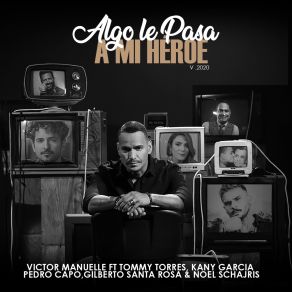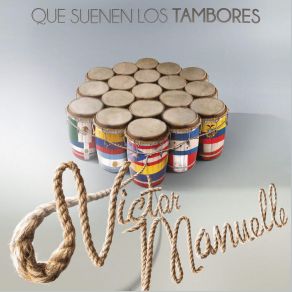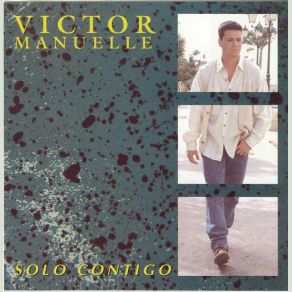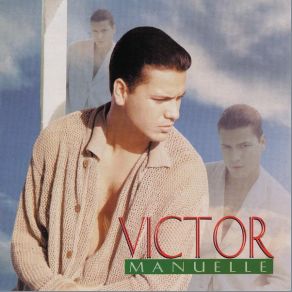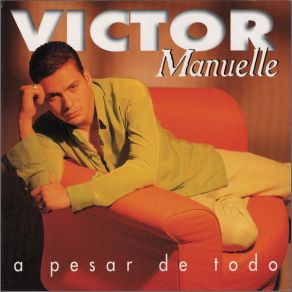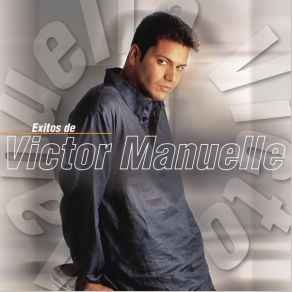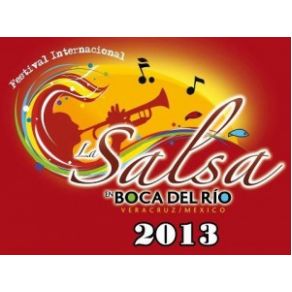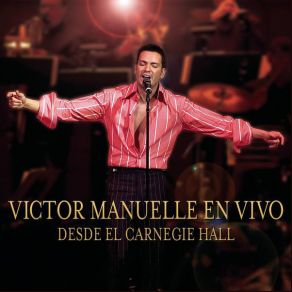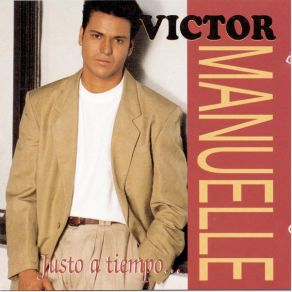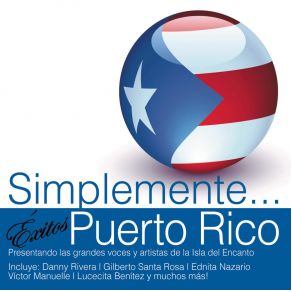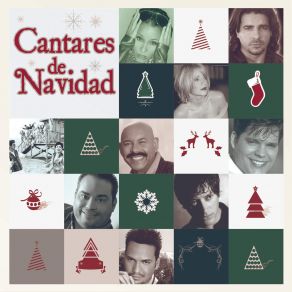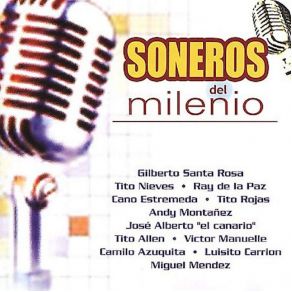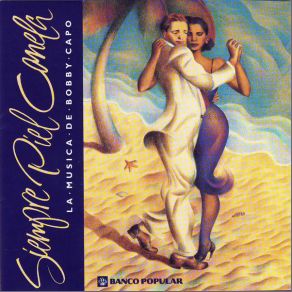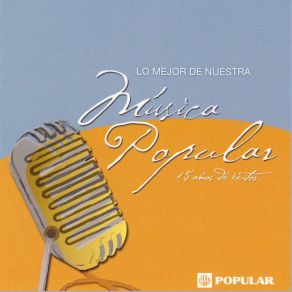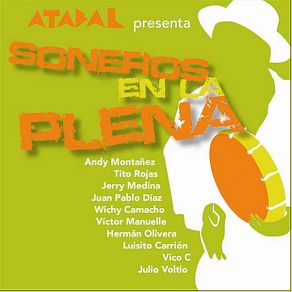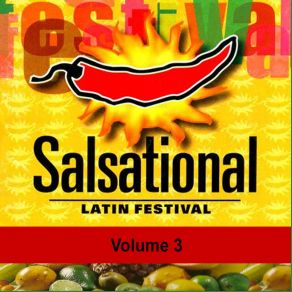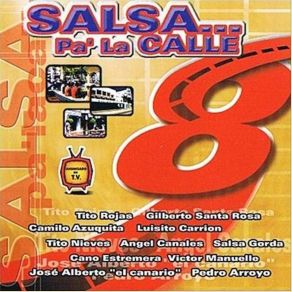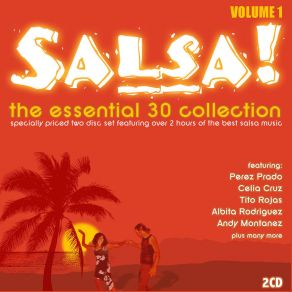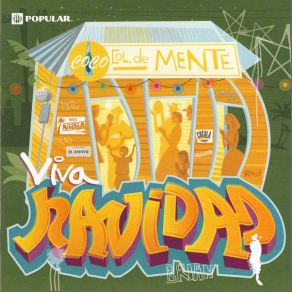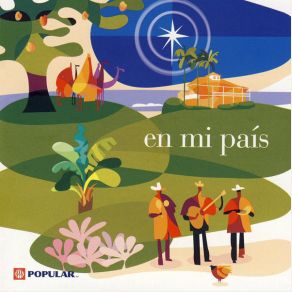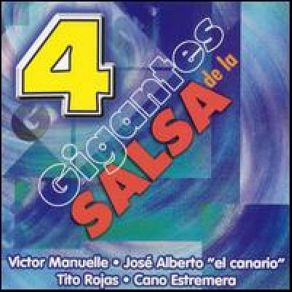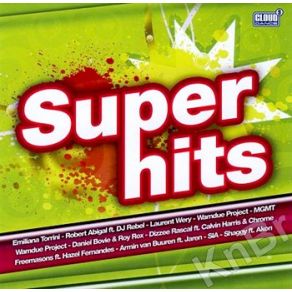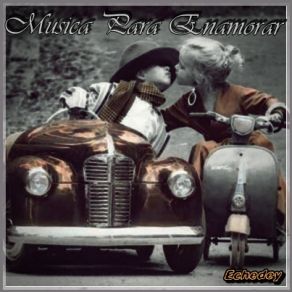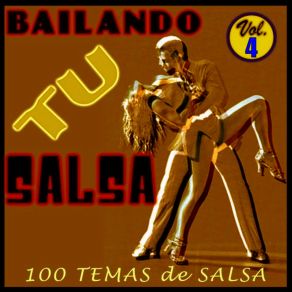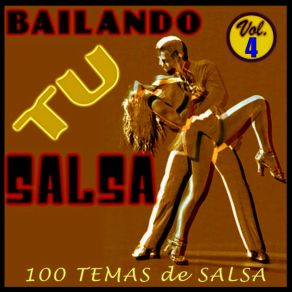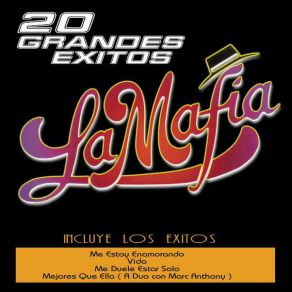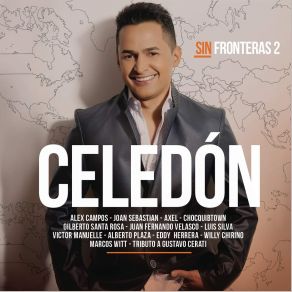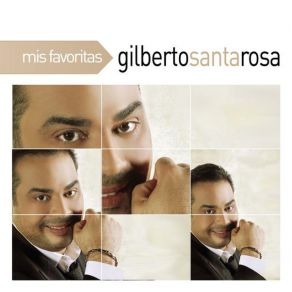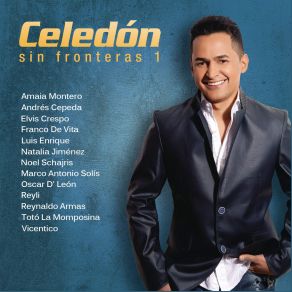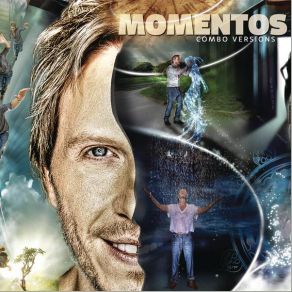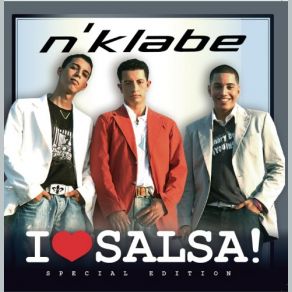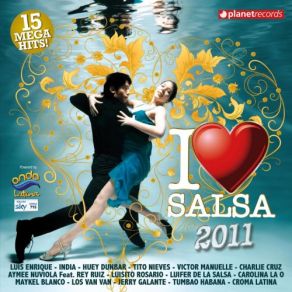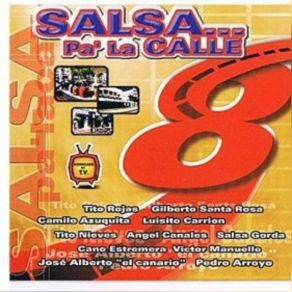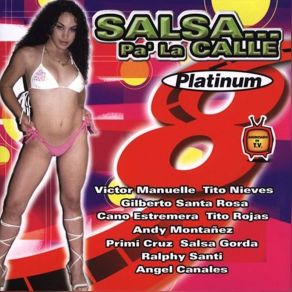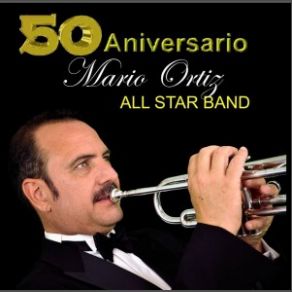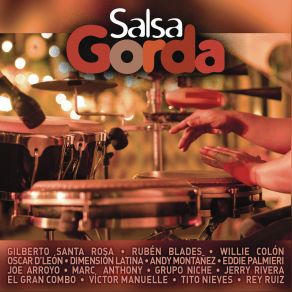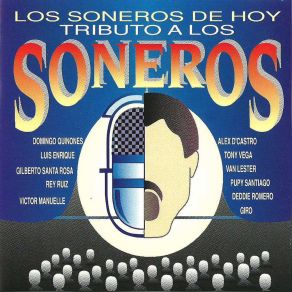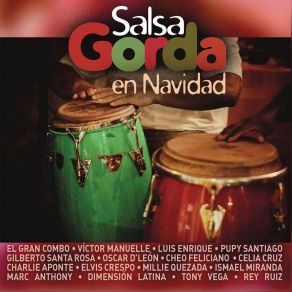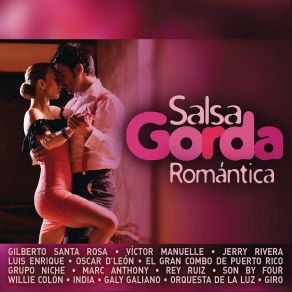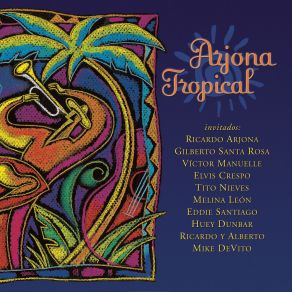Víctor Manuelle / Victor Manuelle
Wikimp3 information about the music of Víctor Manuelle / Victor Manuelle. On our website we have 70 albums and 70 collections of artist Víctor Manuelle / Victor Manuelle. You can find useful information and download songs of this artist. We also know that Víctor Manuelle / Victor Manuelle represents Salsa genres.
Biography
[Edit]Victor Manuelle was a leading voice among the generation of New York salsa performers who rose to prominence in the mid-'90s, along with Marc Anthony and India, who were his only rivals in terms of success and popularity. Mentored by Gilberto Santa Rosa and produced by Sergio George, Manuelle regularly topped the tropical charts during his mid-'90s peak, as his albums Victor Manuelle (1996) and A Pesar de Todo (1997) spun off a nonstop parade of number one hits. The esteemed sonero continued his hitmaking in the years that followed, as every single one of his studio albums in the successive decade spun off at least one tropical chart-topper of its own. However, his impact on the Latin scene seemed to dim a touch as tropical music, including the salsa romántica style championed by Manuelle, lost some of its popularity with the rise of Latin pop and reggaeton. Manuelle responded to the changing times most notably with Decisión Unámine (2006), which he executive-produced himself, his first time doing so on any of his albums; he also assumed the role of chief songwriter here as well. The album, his first released under Sony BMG's Norte banner, included nods to the concurrent reggaeton craze, and as a whole, it showcased Manuelle's ability to remain current with the changing tides of popular Latin music. Not that his relevance had ever been questioned, for El Sonero de la Juventud, as Manuelle was titled by his fans, remained among the top salsa performers year in and year out, and his legacy as one of the leading voices of his generation remained firmly cemented for posterity. After all, it was he who sang "La Vida Es un Carnaval" a cappella at Celia Cruz's funeral at St. Patrick's Cathedral in New York in 2003, a gesture that unquestionably affirmed his royalty among the time-honored salsa elite. Still, Manuelle is not without his critics, some of whom do not consider his music truly salsa. Such purists take issue with the romantic leanings of his music, preferring to classify his music as bolero, or at least salsa romántica (opposed to just plain salsa, or salsa gorda).
Born Víctor Manuel Ruiz on September 27, 1970, in New York, NY, Manuelle was raised mainly in Isabela, Puerto Rico. A famous incident jump-started his professional singing career: Gilberto Santa Rosa was scheduled to perform at the graduation party of Manuelle's high school, and the salsa legend invited the teenage sonero to join him on-stage during the performance. Santa Rosa was so impressed by Manuelle's talent, he subsequently referred the young man to bandleader Don Perignon, who proceeded to hire him as a backup singer. Manuelle obtained priceless experience and industry contacts during his stint with Perignon, and ultimately, he was awarded a solo recording contract with the Sony Tropical division of Sony Discos. Santa Rosa produced Manuelle's debut for the label, Justo a Tiempo... (1993), and a couple modest hits resulted ("Me Dará el Consentimiento," "Estás Tocando Fuego"). Manuelle's recording career was off to a respectable start, and his second album, Sólo Contigo, furthered his initial success. It racked up three charting singles ("Apiádate de Mí," "Voy a Prometerme," "Por Ejemplo"), the first of which climbed all the way to number three on the Latin Tropical/Salsa Airplay chart.
Victor Manuelle (1996), the singer's third album, was his breakthrough. Produced by the great Sergio George — who was the go-to salsa hitmaker of the day, fresh off the mammoth success of Marc Anthony's Todo a Su Tiempo (1995) and India's Dicen Que Soy (1994) — the self-titled album spun off one hit after another, six of them charting in total ("Pensamiento y Palabra," "Hay Que Poner el Alma," "Volveras," "Todo Quedo, Quedo," "Como una Estrella"), with two reaching number one ("Hay Que Poner el Alma," "Volveras"). Manuelle's follow-up album, A Pesar de Todo (1997), also produced by George, along with co-producers Ramón Sánchez and Humberto Ramírez, kept the hit parade marching along unabatedly. Three of the album's four charting singles hit number one ("Así Es la Mujer," "Dile a Ella," "He Tratado" — with "El Aguila" the one to fall short, reaching only number two). Victor Manuelle and Dicen Que Soy not only generated a bounty of hit singles, but they broke the singer into the Latin mainstream, as both albums made the Top Latin Albums chart, with the later going Top Ten. Moreover, many of the singles spun off from these albums made the Hot Latin Tracks chart, with a number of them going Top Ten.
Ramón Sánchez took over the production reins from George for Manuelle's next two albums, Ironías (1998) and Inconfundible (1999). Both were highly successful on a commercial basis, yet Ironías was especially so, including a wealth of hit singles ("Se Me Rompe el Alma," "Qué Habría Sido de Mí," "Al Igual Que Yo," "Qué Te Han Dicho"), the first two of which were chart-toppers. Inconfundible included a chart-topper of its own ("Pero Dile"), along with three further hits ("Si la Ves," "Como Quisiera Decirte," "Como Duele"). In addition to generating plenty of airplay, the two albums sold well: both topped the Tropical/Salsa album chart, with Ironías breaking the Top Five of the Top Latin Albums chart and Inconfundible making it all the way to number two. Nonetheless, commercial success only tells half of the story, for as popular as these albums were, Manuelle's music had begun to grow stale around this time. Sánchez's production may have been modeled after George's brash, street-edged sound, but it was no match. If anything, it was overdone, and indeed, Ironías and Inconfundible arguably sound over-produced in retrospect. Moreover, Manuelle himself didn't help matters, as the songs he sang become increasingly formulaic and predictably romantic in theme.
Manuelle broke away from the stagnation of his late-'90s work on Ironías and Inconfundible by aligning himself with some new collaborators. He worked with a new producer, José Lugo, whose long list of credits up to this point in time included steady work with Manuelle's mentor, Gilberto Santa Rosa, as well as rival Marc Anthony. Besides Lugo, Manuelle brought aboard Bobby Valentín, aka El Rey del Bajo, whose days as a storied bandleader date back to the Fania All-Stars. With Lugo at the helm and Valentín providing inspiration, Manuelle fashioned his next album, Instinto y Deseo, as relatively straightforward salsa. The throwback style of the album seemed to be a response to critics, including fans-turned-critics, with whom Manuelle had lost favor. More than anything, though, it was simply a welcome change of course for the sonero. If the critics remained cautiously skeptical, consumers certainly took well to the album: Instinto y Deseo topped the Hot Latin Albums chart and spawned a pair of number one Tropical/Salsa Airplay singles, "Me Da Lo Mismo" and "Cómo Se Lo Explico al Corazón." Manuelle followed Instinto y Deseo with Le Preguntaba a la Luna, an even further old-fashioned album again produced by Lugo. Notably, four of the album's 11 songs were written by Manuelle, who previously had relied on professional songwriters, above all the prolific Omar Alfanno, who contributed one song to Le Preguntaba a la Luna, the chart-topping album-opener, "En Nombre de los Dos." Other hits from the album included "Poco Hombre" and "El Tonto Que No Te Olvidó," the latter of which also hit number one.
With his salsa credentials shored up in the eyes of many, Manuelle subsequently made a surprise left turn and unabashedly went for the so-called crossover. Hence the name of his next album, Travesía (Crossover in English), and the producers with whom he worked, Emelio Estefan and the Gaitán Bros. (i.e., Alberto and Ricardo Gaitán), who between the two camps had worked with everyone from Gloria Estefan and Jon Secada to Ricky Martin and Thalía. These producers also served as songwriters, penning most of the album's songs. A lot of fans and critics were put off by the pop slant of the ballads that were sprinkled across the second half of the album, but on the other hand, Travesía features a hefty serving of first-rate salsa on the first half, with a few hits standing out ("Lloré, Lloré," "Tengo Ganas," "Te Propongo"). The ballads sequenced toward the conclusion of the album are less engaging, though the pop version of "Tengo Ganas" was a sizable hit, climbing up to number 11 on the Hot Latin Tracks chart. The album itself sold exceptionally well, despite the criticism; it reached number one on the Top Latin Albums chart. On the heels of Manuelle's "crossover," he performed a concert at Carnegie Hall in New York on November 8, 2004, that was subsequently released the following year on CD, produced by Estefan. The concert featured a moving rendition of the recently passed away Celia Cruz's signature song, "La Vida Es un Carnaval," which Manuelle had sung a cappella at her funeral in 2003. The song was released to radio as a single and became a modest hit. Late in the year, Sony released another live album featuring Manuelle, Dos Soneros, una Historia (2005), which showcased a poorly recorded, albeit milestone, concert also featuring Santa Rosa.
Manuelle executive-produced his next studio album, Decisión Unámine (2006), himself. It was his first release under the Norte banner of Sony BMG, and it was another sharp turn of direction. Rather than going for the crossover like last time, Manuelle took a purist approach, embracing his salsa roots, and included numerous collaborations, including one with reggaeton superstar Don Omar, two with fellow salsero Eddie Palmieri, and one with Mexican sensation Yuridia. Lugo was back at the production helm and Valentín is again credited with arrangement, and together they, along with the other studio hands, bring an old-fashioned salsa style to the album that goes surprisingly well with the occasional nods to contemporary styles like reggaeton. Decisión Unámine failed to reach number one on the Hot Latin Albums chart, climbing only to number six, but it was a success nonetheless, spinning off a few strong singles ("Nuestro Amor Se Ha Vuelto Ayer," "Maldita Suerte," "Nunca Había Llorado Así") and, above all, earning the praise of fans and critics. In fact, Decisión Unámine was perhaps Manuelle's most admired album since Instinto y Deseo, if not A Pesar de Todo. In the wake of the album's splash, Manuelle co-hosted the 2006 Latin Grammys and won a 2007 Premio Lo Nuestro award for Best Salsa Artist.
Artist: Víctor Manuelle / Victor Manuelle
Genre: Latin
Title: Dos Clásicos (CD1) / Dos Clasicos (CD1)
Artist: Víctor Manuelle / Victor Manuelle
Genre: Latin
Title: Ángel en la Tierra - Single / Angel en la Tierra - Single
Artist: Víctor Manuelle / Victor Manuelle
Genre: Latin
Title: Mala y Peligrosa - Single (feat. Bad Bunny) - Single
Artist: Víctor Manuelle / Victor Manuelle
Genre: Latin
Title: Una Navidad A Mi Estilo
Artist: Víctor Manuelle / Victor Manuelle
Genre: Rock, Alternative Rock, Christian Rock, World Music, Latin, Country, Christian Country Music, Alternative
Title: Dos Soneros, Una Historia, Directo Al Corazon
Artist: Gilberto Santa Rosa, Víctor Manuelle / Victor Manuelle
Genre: Salsa
Title: Victor Manuelle (3 CD Box Set)
Artist: Víctor Manuelle / Victor Manuelle
Genre: World Music, Latin
Title: Descara (Version Salsa) - Single
Artist: Yomo, Víctor Manuelle / Victor Manuelle
Title: Boca Del Río, Veracruz 2013 / Boca Del Rio, Veracruz 2013
Artist: Víctor Manuelle / Victor Manuelle
Genre: Latin
Title: Me Llamaré Tuyo / Me Llamare Tuyo
Artist: Víctor Manuelle / Victor Manuelle
Genre: Salsa, World Music, Latin
Title: Me Llamaré Tuyo Reloaded / Me Llamare Tuyo Reloaded
Artist: Víctor Manuelle / Victor Manuelle
Genre: World Music, Latin
Title: Que Suenen los Tambores
Artist: Víctor Manuelle / Victor Manuelle
Genre: Salsa, World Music, Latin
Title: Me Quedé Puyú - Single / Me Quede Puyu - Single
Artist: Víctor Manuelle / Victor Manuelle
Genre: Latin
Title: Dos Clásicos (CD2) / Dos Clasicos (CD2)
Artist: Víctor Manuelle / Victor Manuelle
Genre: Latin
Collections
Title: Lo Mejor de Lo Mejor - 2014
Genre: Latin
Title: Navidad en Borínquen / Navidad en Borinquen
Genre: Latin
Title: Cantares de Navidad
Genre: Latin, Traditional Pop Music
Title: Los Cocorocos
Title: Top Latino Navidad
Genre: Latin, Traditional Pop Music
Title: Viernes Social... a Lo Tropical
Genre: Salsa, World Music, Latin
Title: I Love Salsa 2011 (15 Salsa Hits)
Genre: World Music, Latin
Title: Arjona Trópico / Arjona Tropico
Genre: Latin
Title: Soneros del Milenio
Genre: Latin
Title: MLB Caliente
Genre: Dancefloor, Latin, Dance Pop
Title: Siempre Piel Canela - La Musica de Bobby Capo
Genre: Latin
Title: Lo Mejor de Lo Mejor - 2013
Genre: Latin
Title: Lo Mejor de Nuestra Musica Popular
Genre: Latin
Title: Salsa Pa'La Calle 2005
Genre: Latin
Title: Salsa del Ayer, Vol. 2
Genre: Latin
Title: Joyas de la Salsa, Vol. 3
Genre: Latin
Title: Latino 26 (Salsa Bachata Merengue Reggaeton)
Genre: Salsa, World Music, Latin
Title: 2002 Ultimate Mega Hits
Genre: Latin, Alternative
Title: Soneros en la Plena
Genre: Latin
Title: Salsa Pa' La Calle Platinum
Genre: Latin
Title: Salsa… Pa' La Calle / Salsa... Pa' La Calle
Genre: Latin
Title: Top Latino Tropical
Title: Salsa… Pa' La Calle / Salsa... Pa' La Calle
Genre: Latin
Title: Salsa De Amor Vol. 2
Genre: Latin
Title: La Trulla del Pam Pam Pam
Title: Salsa Simply the Best
Title: Canciones de Amor... en Salsa
Genre: Salsa, World Music, Latin
Title: Tributo a Simón Díaz / Tributo a Simon Diaz
Genre: World Music, Latin
Title: Queridos Reyes Magos
Genre: Latin
Title: Parranda All-Stars: Navidad
Genre: Latin, Traditional Pop Music
Title: Viva Navidad
Genre: Latin
Title: Top Latino V.7
Genre: Latin
Title: Reggaeton Hitmakers Love Stories
Genre: Latin
Title: En Mi País / En Mi Pais
Title: Querida Madre
Genre: Latin
Title: Salsa Pa' La Calle 2005
Genre: Latin
Title: 4 Gigantes de la Salsa
Title: Ritmos Latinos CD 3
Genre: Latin
Title: Pensando En Ti... CD 9
Title: The Best Of Latino CD2
Genre: Dancefloor, Latin, Pop, Pop Rock, Dance Pop
Title: Super Hits Vol. 52
Genre: Electronica, Euro House, Trance, Pop
Title: Super Hits Vol. 59
Genre: Latin
Title: Salsa Romantica
Genre: Salsa
Title: Lo Mejor De La Musica Latina CD7
Genre: Latin
Title: Lo Esencial De La Salsa (Disc 1)
Genre: Pop
Title: Lo Esencial De La Salsa (Disc 4)
Genre: Salsa
Title: La Reina Y Sus Amigos
Genre: World Music, Latin
Title: Memorias Del Corazón CD1 / Memorias Del Corazon CD1
Genre: Pop
Title: Todo Ritmos Latinos. Vol. I. CD 3
Genre: Pop
Title: Todo Ritmos Latinos. Vol. II CD 3
Genre: Pop
Title: V. A I Love Salsa 2011
Genre: Salsa, World Music, Latin
Title: Bailando TU Salsa Vol. 4 CD3
Genre: Pop
Title: Bailando TU Salsa Vol. 4 CD4
Genre: World Music, Latin
Title: Bailando TU Salsa Vol. 4 CD5
Genre: Pop
Title: Latinos De Corazon
Genre: Latin
Title: Mi Rumba Navideña Vol. 2 / Mi Rumba Navidena Vol. 2
Genre: Pop
Title: Romance Del Cumbachero
Genre: World Music, Latin, New Romantic
Featuring albums
Title: Uno No Es Uno (Edición Especial) / Uno No Es Uno (Edicion Especial)
Artist: Noel Schajris
Genre: Latin
Title: Salsa y Plena Navideña / Salsa y Plena Navidena
Artist: Various Artists
Genre: Salsa, World Music, Latin
Title: Dos Soneros... Una Historia
Artist: Victor Manuelle Gilberto Santa Rosa
Genre: Salsa, World Music, Latin
Title: Goldstar Music La Familia Reggaeton Hits
Artist: Héctor El Father / Hector El Father
Genre: Latin Folk








